The Anti-Palestinian Racism Mandates: A Charade of Virtue
But it's anti racism, doesn't that mean it's good?
If you believe in the importance of free speech, subscribe to support uncensored, fearless writing—the more people who pay, the more time I can devote to this. Free speech matters. I am a university professor who was suspended fired due to a free speech issue, so I am not speaking from the bleachers.
Please subscribe to receive at least three pieces or essays per week, along with open comments. It’s $6 per month and less than USD 4.
But I only ask that when you choose your Substack cup of coffee, please choose mine. Cheers.
Speeding kills, racism maims—slam the book shut, right? Dare to oppose these mandates, and you’re branded a bigot, a moral outcast, “it’s something bad, don’t we hate bad things?”
Wrong. Utterly, contemptibly wrong. A car’s speed is a stark, measurable fact, unless your Lexus fancies itself a saintly dawdler at 30 kph while blitzing at 60.
But Anti-Palestinian Racism? It’s a shapeshifting spectre, a cudgel of bad faith. The road to hell is paved with good intentions, but these mandates aren’t even that honest. Good intentions my ass.
They are trying to silence the Jews, and they must be challenged.
They’re a grotesque masquerade, cloaked in the pious rags of tolerance, crafted to throttle free speech, vilify Jews, and embolden the very extremists they pretend to leash. Their effect is a creeping venom, poisoning our universities, our laws, our fragile Canadian democracy, threatening to choke liberty itself.
The Gagging of Free Speech
Behold the first victim of APR mandates: the sacred, blood-bought right to speak truth to power. These decrees slap the label of “racism” on any critique of Palestinian leadership—Hamas, with its genocidal charter, say—ensnaring scholars, students, anyone with the gall to think aloud.
Joseph Goebbels, that reptilian propagandist, sneered in 1934: “The cleverest trick in propaganda was to accuse Germany of what our enemies were doing.” This “accusation in a mirror” persists today, as APR mandates that its enforcers place the blame on their critics, fostering fear and self-censorship.
But the only freedom that counts is the freedom to disagree.
Without it, we’re reduced to bleating approved platitudes, our discourse a spineless farce. Alan Dershowitz thundered, “Label political disagreement as bigotry, and you pave the way for tyranny.” These mandates don’t chill speech; they strangle it, forging a Canada where truth is shackled and dissent is a felony.
The Scapegoating of Jews
Oh, the hypocrisy! Policies draped in anti-racism’s halo become bludgeons against Jewish communities. APR mandates peddling an infantile Israeli-Palestinian narrative: Palestinians as eternal martyrs, Israelis—and Jews by extension—as eternal oppressors. This resurrects anti-Semitic tropes, fusing Jewish identity with geopolitical strife.
Margaret Thatcher warned, “Watch your thoughts, for they become actions; watch your actions, for they become habits.”
When universities and policies entrench this poisonous lie, it metastasises into harassment, vandalism, and violence.
The Anti-Defamation League reports Jewish students cowering on campuses, silenced by anti-Semitic venom masquerading as anti-Zionism.
In 2023, Canada’s antisemitic incidents doubled, with synagogue firebombings in Montreal and assaults on Jewish students, per B’nai Brith’s grim ledger. These mandates don’t unite; they divide, marginalising Jewish voices and mocking their centuries of suffering. This isn’t tolerance—it’s betrayal.
Emboldening the Heralds of Terror
Mark this: APR mandates are a love letter to extremists. By shielding groups like Hamas or the Houthis from scrutiny, they grant carte blanche to terror draped in victimhood.
Hamas, with its bloodlust codified, thrives in this intellectual wasteland, its atrocities laundered as “resistance.”
Condoleezza Rice’s warning burns true: “Free societies not vigilant in defending their freedoms become breeding grounds for tyranny.”
We are asleep.
When critique of such groups is branded “racist,” these mandates amplify terror’s megaphone, shredding hopes of Israeli-Palestinian dialogue. This isn’t peace; it’s surrender to savagery.
The Tyranny of Thought Control
APR mandates herald a broader pestilence: the creep of ideological conformity, where dissent is blasphemy and diversity of thought a crime.
Barack Obama declared, “The strongest democracies flourish from frequent and lively debate.” These policies spit on that truth, reducing the Israeli-Palestinian conflict to a simplistic morality tale, ignoring Palestinian agency and the conflict’s thorny roots.
This isn’t enlightenment; it’s a retreat to the dogmatic dark ages, where questioning the orthodoxy invites crucifixion. By enforcing this monochrome dogma, APR mandates smothering the inquiry that fuels a free society. They don’t elevate discourse; they entomb it.
The Kangaroo Courts of Campus Tribunals
Enter the star chambers of university tribunals, where APR mandates become weapons of vengeance. Legitimate critique—say, of Hamas’s Nazi-inspired roots in the Muslim Brotherhood—can be twisted into “racism,” dragging dissenters before these amateur inquisitors.
When I called Hamas Nazis, idiot students screamed, “report, report, report” but not one dared to speak to me. And my investigators were so wise that they did not have to trouble themselves with allowing me a defence or producing evidence, proclaiming a verdict and filling in the rest at a university? That societal foundation of reason?
They expected me to drink from their false judgments and leave quietly after quaffing their hubristic brew.
Lacking the impartiality of real courts, these tribunals prioritise institutional optics over justice. Anonymous accusations, bereft of dates or details, mock natural justice, denying the accused a fair defence.
You might as well disprove the wind. Complainants brandish these mandates to settle scores, cloaking vendettas in righteousness.
This isn’t fairness; it’s a rigged game, where guilt is assumed, and innocence is a myth.
A Blueprint for Censorship’s Spread
Let APR mandates fester, and watch the cancer metastasise. If criticising one group is “racism,” what stops similar edicts from shielding other ideologies?
A student group championing free speech could be next, silenced for “offensive” views. This lays the tracks for a Canada where no idea can be challenged, where debate is a fossil, and conformity reigns.
Benjamin Franklin’s warning: “Whoever would overthrow the liberty of a nation must begin by subduing the freeness of speech.” These mandates are the opening salvo, a roadmap to a future where dissent is outlawed and freedom is a whisper.
A Call to Defiance
We teeter on the abyss. To rout this creeping tyranny, we must reclaim free speech, critical inquiry, and the guts to face bitter truths.
Golda Meir’s words, raw and unsparing, cut deep: “We will only have peace when they love their children more than they hate us.”
Superficial fixes, such as APR mandates, dodge the conflict’s roots, peddling bromides while division burns.
We must forge a Canada where ideas clash freely, where complexity is wrestled with, not shunned. This is our shield against extremism, our ode to diversity, our vow to justice.
If you found value in this article and wish to support my ongoing work, please consider leaving a tip. Your support helps me continue producing uncensored content on critical issues.





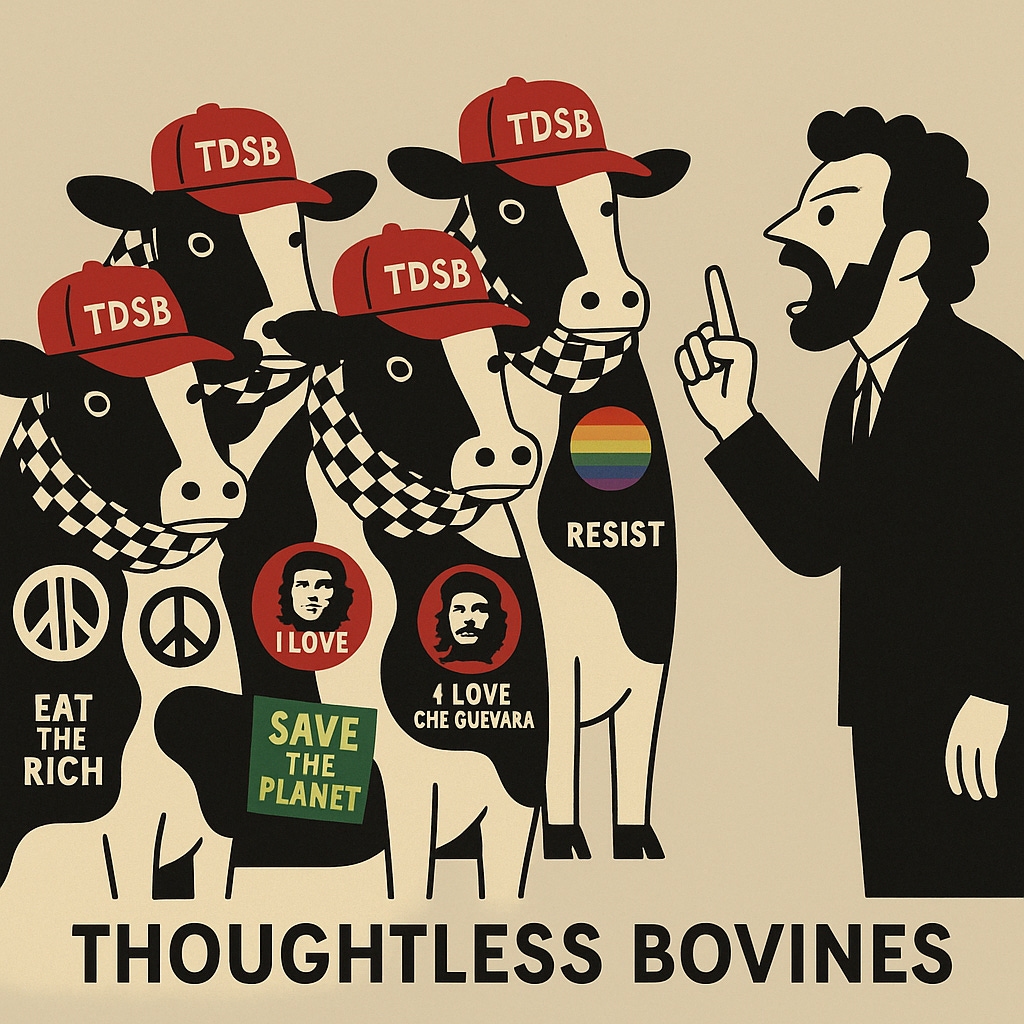
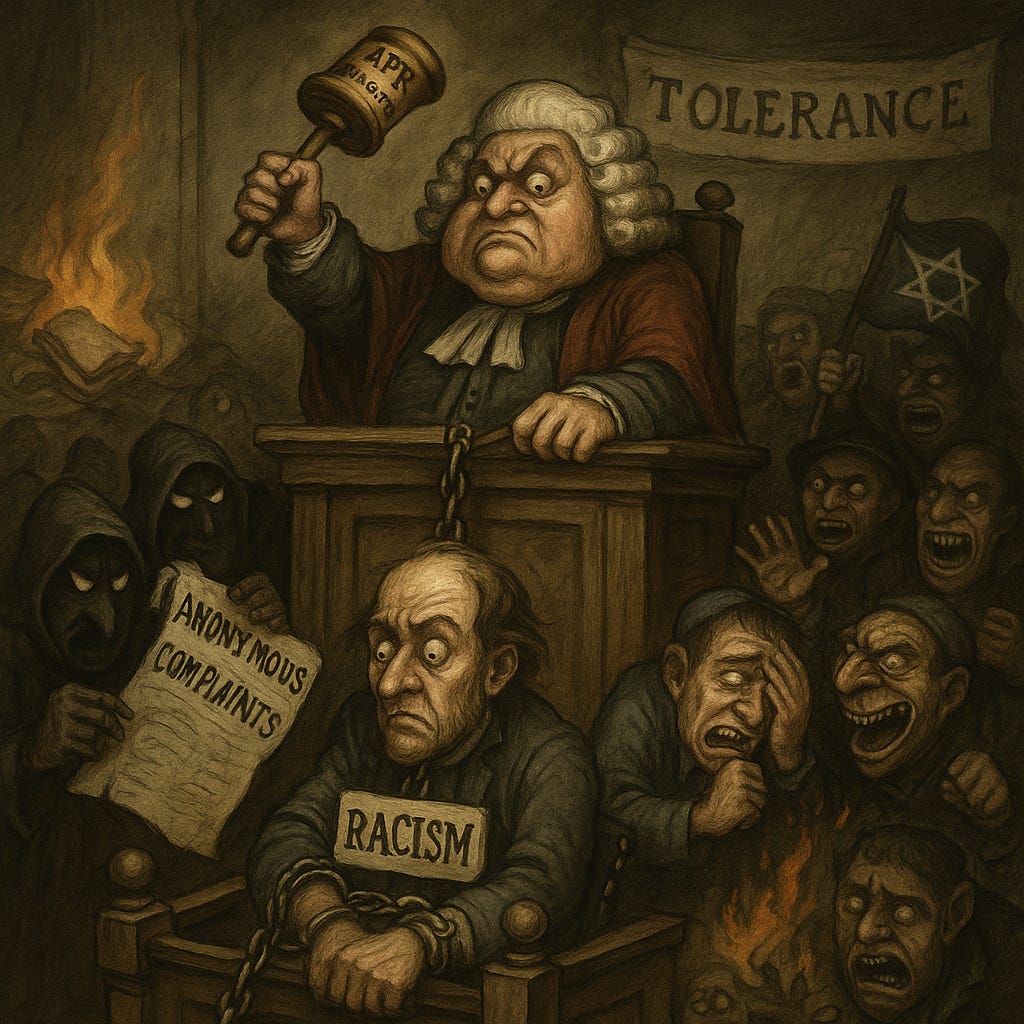
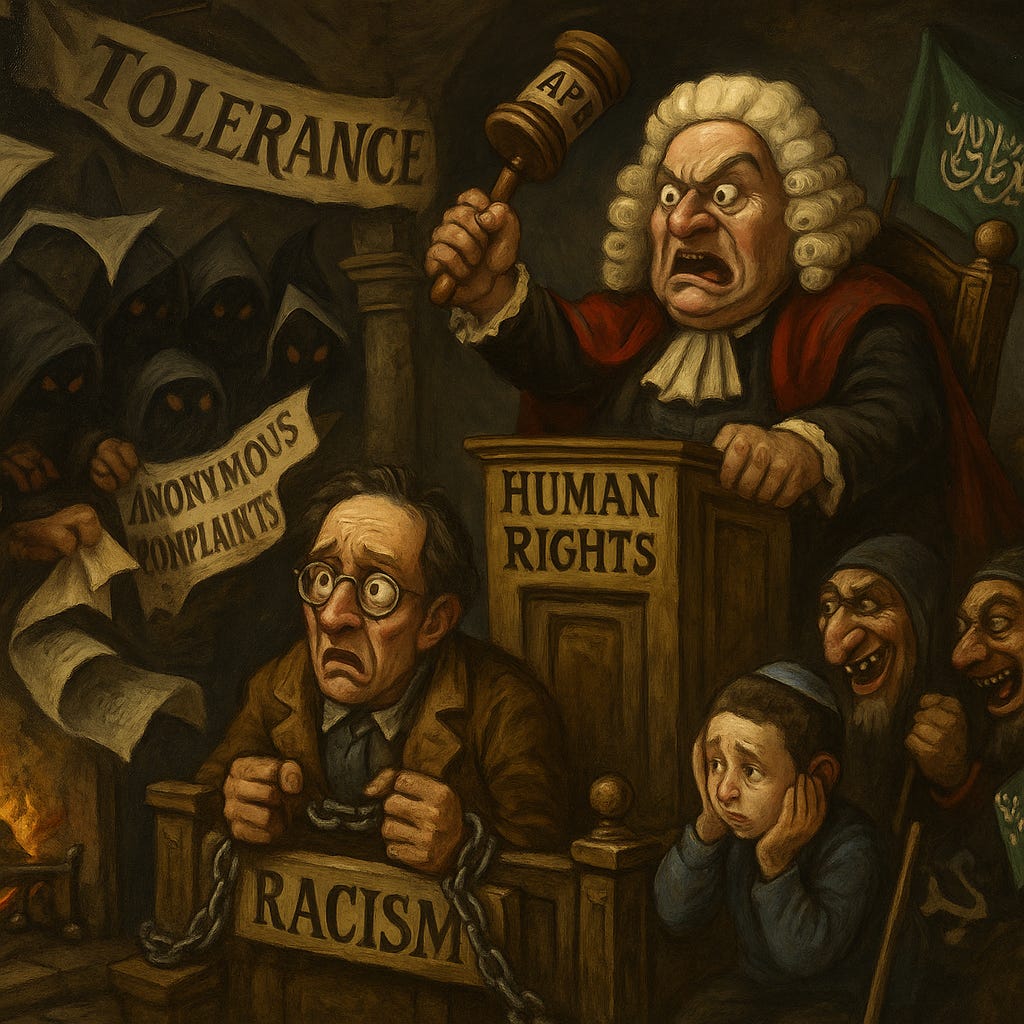
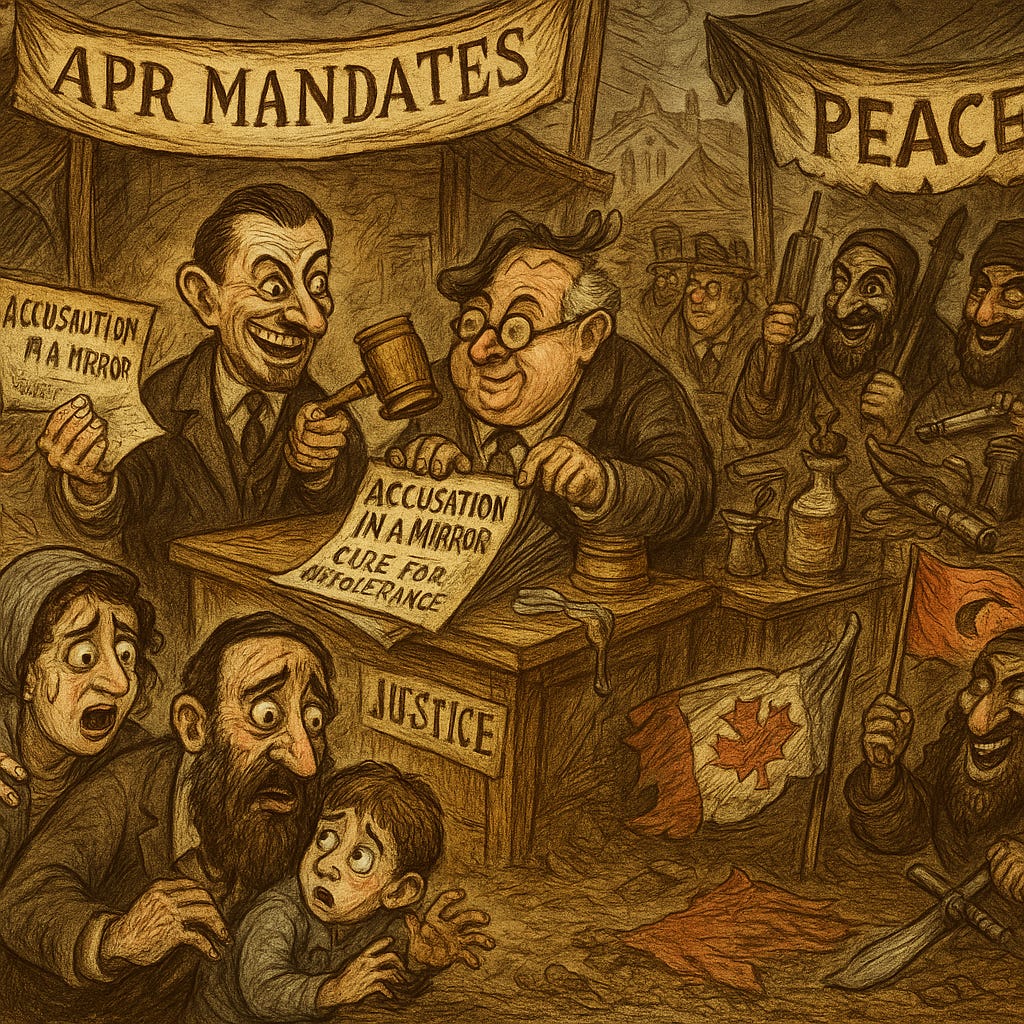
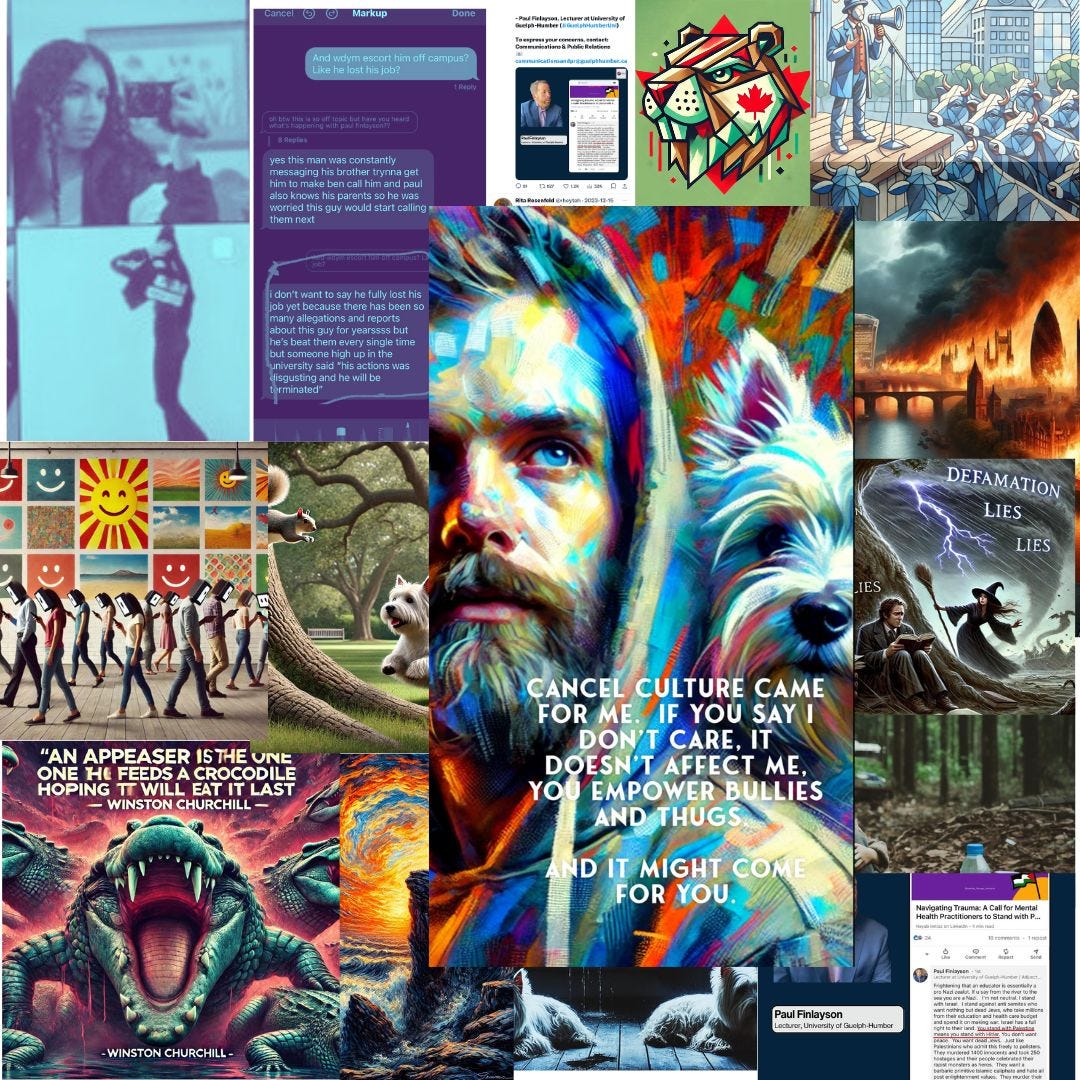
APR is just another step towards Dhimmitude, a state that our current government seems much too eager to embrace.
APR is another manipulative step toward creating disension and taking away free speech in a civil fair arena. Our current Government seems to be intentional in promoting division and conflict within Canada in the same way it promotes conflict indirectly against the Jewish population.